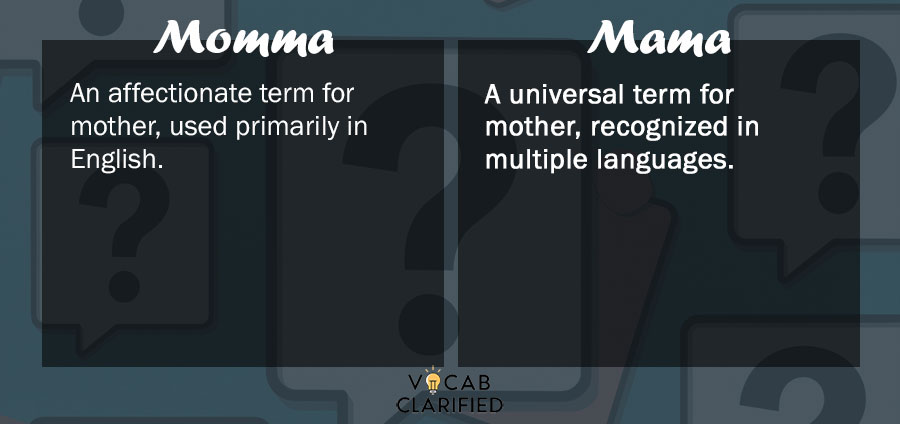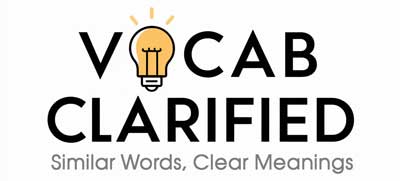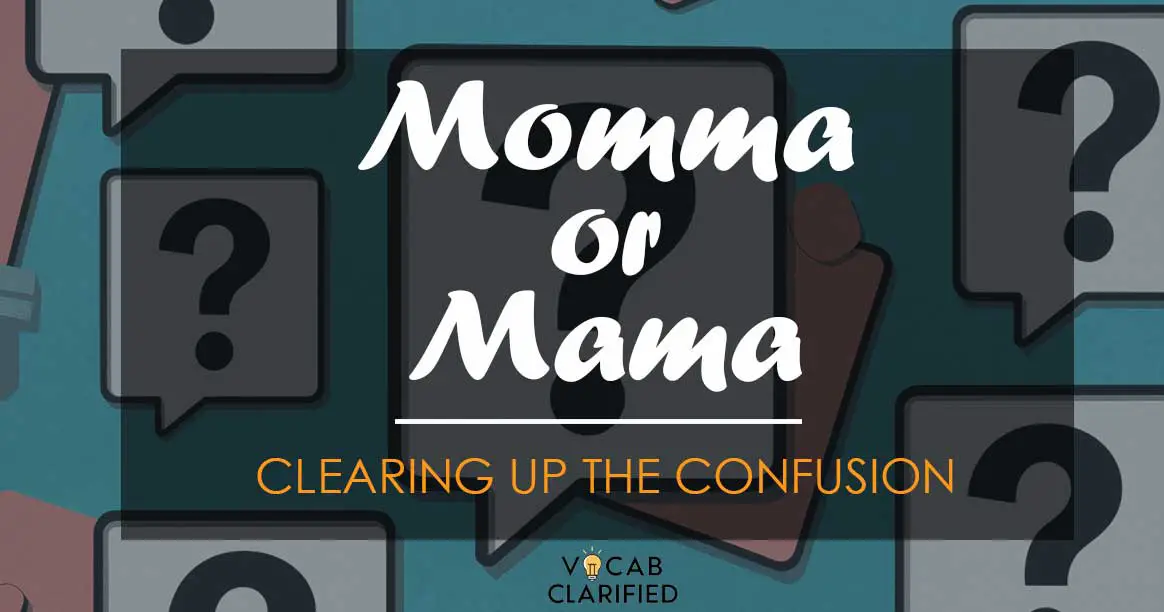Ever hesitate between “momma” or “mama” while writing? Many of us do!
This article explores the subtle differences between these terms, helping you choose the right one.
Understanding Momma And Mama
Momma: Definition and Usage
“Momma” is typically used in informal contexts or when expressing endearment, warmth, or familiarity. It means “mother” but carries a slightly more affectionate or down-to-earth connotation. For example:
- “Momma always knows best when it comes to comfort food.”
- “I can’t wait to visit momma this weekend; I miss her cooking.”
Mama: Definition and Usage
Contrastingly, “mama” is often applied in similar informal contexts but can also be found in various cultural expressions. It stands for “mother” as well and is used worldwide in different languages and dialects. For instance:
- “Mama Mia! That’s some spicy meatball!”
- “My mama taught me that recipe when I was just a kid.”

Side-by-Side Comparison
To further clarify the differences and help you decide which to use, here’s a side-by-side comparison:
| Aspect | Momma | Mama |
| Definition | An affectionate term for mother, used primarily in English. | A universal term for mother, recognized in multiple languages. |
| Common Usage | “I love you, momma.” | “Mama, can you help me?” |
| Key Differences | Often considered more colloquial and region-specific. | More universally recognized and used across different cultures. |
Using Momma And Mama In Different Ways
Let’s check some more examples to illustrate how “momma” and “mama” fit into everyday language:
- Momma:
- In a Southern U.S. context: “Momma’s gonna make her special pie for Thanksgiving.”
- Reflecting childhood nostalgia: “Back home, momma always had a way of making things better.”
- Mama:
- In a song or lullaby: “Hush now, mama’s here to sing you to sleep.”
- Across different cultures: “In Italy, they say ‘mamma’; in Spain, ‘mamá’; but the love is the same.”
- Sharing childhood memories: “Back home, momma always made the best cookies.”
- Singing a lullaby: “Hush little baby, don’t you cry, mama’s gonna rock you bye bye.”
- Addressing a mother in a different language: “Hola, mamá. ¿Cómo estás?” (Spanish for “Hello, mom. How are you?”)
Beyond The Words
Both “momma” and “mama” carry the love and respect for mothers. While their usage might differ, the sentiment remains the same.
FAQ: “Momma vs. Mama”
“Momma” and “mama” are both informal terms for mother, used affectionately. “Momma” is often used in American English, while “mama” is more universally recognized and used in various languages and regions.
Both “momma” and “mama” can be used in casual speech or writing when referring to one’s mother. For example, “I’m visiting momma this weekend” or “Mama cooked my favorite meal.” The context is informal, reflecting a close, familial relationship.
Both terms are considered informal and are typically used in familiar settings. They are more likely to be used in personal conversations than in formal writing or speech.
Generally, “momma” and “mama” are not used in formal writing. In more formal contexts, terms like “mother” or “mom” are more appropriate.
The origins of “momma” and “mama” trace back to baby talk. They are among the first sounds infants make and are easily recognized by mothers, leading to their widespread use as terms for mother in many languages.
Conclusion
Now that you have seen “momma” and “mama” in action, the confusion should be dissipating. Remember, the key to mastering language nuances lies in understanding and practice. Use this guide as a reference, and soon, you won’t having any doubts whether you should use momma or mama.

